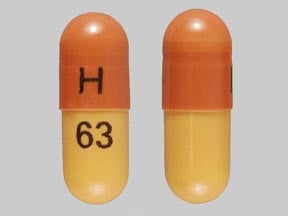
Stavudine Coupons & Savings Card – Discount Prices from $374.77
Stavudine is a medication used in combination with other drugs to manage HIV infection. It works by reducing the amount of HIV in your body, which helps your immune system function more effectively. This, in turn, lowers the risk of HIV-related complications, such as infections and cancer, and enhances your overall quality of life. Stavudine is classified as a nucleoside reverse transcriptase inhibitor (NRTI). While it is important to note that Stavudine does not cure HIV, adherence to your prescribed treatment plan is crucial. Additionally, to minimize the risk of transmitting HIV to others, it is essential to use effective barrier methods, like condoms or dental dams, during sexual activity and avoid sharing personal items that may have been in contact with blood or bodily fluids. Always follow your healthcare provider's guidance for comprehensive care. However, be aware that Stavudine has significant side effects, which have considerably reduced its use, and it is no longer available in the U.S.
Our coupons are free to use. Before paying, show the pharmacist your Stavudine savings card to get your free discount. Use our filters below to edit the prescription box to match your needs. The Stavudine prices will update based on your prescription needs. Above our Stavudine coupons, you can change your location to see pharmacy prices and costs in other areas. We're here to help you buy Stavudine at the lowest price with our prescription discount card.
My prescription
Edit
15MG, Stavudine (60 Capsules)
Select pharmacy

CVS
$381.16
COUPON PRICE
Walgreens
$374.77
COUPON PRICE
Albertsons
$388.06
COUPON PRICEStavudine savings card
Show this card to your pharmacist
Walgreens
$374.77
BIN
ID
PCN
GRP
019876
LH9D6F8DBB
CHIPPO
LHX
Powered by
Stavudine is a medication used in combination with other drugs to manage HIV infection. It works by reducing the amount of HIV in your body, which helps your immune system function more effectively. This, in turn, lowers the risk of HIV-related complications, such as infections and cancer, and enhances your overall quality of life. Stavudine is classified as a nucleoside reverse transcriptase inhibitor (NRTI). While it is important to note that Stavudine does not cure HIV, adherence to your prescribed treatment plan is crucial. Additionally, to minimize the risk of transmitting HIV to others, it is essential to use effective barrier methods, like condoms or dental dams, during sexual activity and avoid sharing personal items that may have been in contact with blood or bodily fluids. Always follow your healthcare provider's guidance for comprehensive care. However, be aware that Stavudine has significant side effects, which have considerably reduced its use, and it is no longer available in the U.S.
Our coupons are free to use. Before paying, show the pharmacist your Stavudine savings card to get your free discount. Use our filters below to edit the prescription box to match your needs. The Stavudine prices will update based on your prescription needs. Above our Stavudine coupons, you can change your location to see pharmacy prices and costs in other areas. We're here to help you buy Stavudine at the lowest price with our prescription discount card.
More prescriptions for hiv treatment
More prescriptions for hiv treatment
Cimduo Save 14%coupons from $1279.04
Reyataz Save 76%coupons from $36.65
Symfi Lo Save 60%coupons from $684.25
Kaletra Save 62%coupons from $360.50
Maraviroc Save 69%coupons from $424.99
Symfi Save 78%coupons from $318.16
Ziagen Save 17%coupons from $43.92
Abacavir Save 17%coupons from $43.92
Stavudine dosage forms
Use our Stavudine 15MG coupon with prices from $374.77 for 60 Capsules. You can also use our Stavudine 20MG coupon with prices from $390.02 for 60 Capsules. We have a Stavudine 30MG coupon with prices from $414.80 for 60 Capsules. You can use our Stavudine 40MG coupon with prices from $422.61 for 60 Capsules.
Dosage Quantity Price from Per unit 15MG 60 Capsules $374.77 $6.25 20MG 60 Capsules $390.02 $6.50 30MG 60 Capsules $414.80 $6.91 40MG 60 Capsules $422.61 $7.04
| Dosage | Quantity | Price from | Per unit |
|---|---|---|---|
| 15MG | 60 Capsules | $374.77 | $6.25 |
| 20MG | 60 Capsules | $390.02 | $6.50 |
| 30MG | 60 Capsules | $414.80 | $6.91 |
| 40MG | 60 Capsules | $422.61 | $7.04 |
